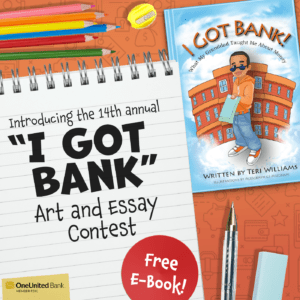If you are looking to obtain credit for the first time or rebuild your credit after a period of unemployment or poor purchasing decisions, a secured credit card might be your best bet. Secured cards are excellent credit cards for bad credit, and allow members to obtain credit after putting down collateral in the form of a deposit. The credit limit is usually the amount that is deposited. Members can then build or rebuild credit when they otherwise wouldn’t be able to do so. However, as with traditional credit cards, there are good and bad options, so it’s important to shop around to find the best one for you. Here are several things you should pay attention to when researching secured credit cards:
A Secured Credit Card Is Not a Prepaid Card
We cannot emphasize this enough. A prepaid card is cash-centered, meaning you are using it until the balance reaches zero. Then you’ll have to reload it. Although it can teach you to make smart purchasing decisions, it does not report to any major credit bureaus, so it cannot rebuild your credit. When shopping for secured credit cards, remember that they are not the same as prepaid cards.
Watch Out for the Fees
Did you know that some banks charge application fees when you apply for the card? You have to pay before you are even approved. As mentioned above, there are good cards and bad cards. Some are looking to exploit those who may not have anywhere else to turn. Other banks actually do care about their members and want to build long-term customer relationships with them. Therefore, it’s important to take a look at the card’s fee schedule.
They’re Becoming Rarer
Unfortunately, secured credit cards are not offered as often as they used to be; instead, many banks are opting for prepaid cards or unsecured credit cards with lower limits but higher fees, as these cards generate more money for the bank. Individuals with bad credit shouldn’t wait to start their search for a good secured credit card as they are becoming less frequently offered.
Use Education Programs Offered Along with the Card
If you have bad credit, you might not have a clear understanding of how credit works or what goes into responsible budget-making. Many banks understand this and offer free educational materials as part of their membership perks. If your bank offers you education programs along with the card, remember to make use of them. They’re often free and can help you build a foundation to know how to use your card and approach future credit opportunities.
OneUnited’s UNITY Visa comes at a fixed rate, doesn’t charge an application fee or other excessive fees, and includes a “How to Rebuild Credit” education program. It reports to all three major credit bureaus and is a great credit card option for those with bad credit. Visit www.UnityVisa.com for more information and obtain your card today.

















